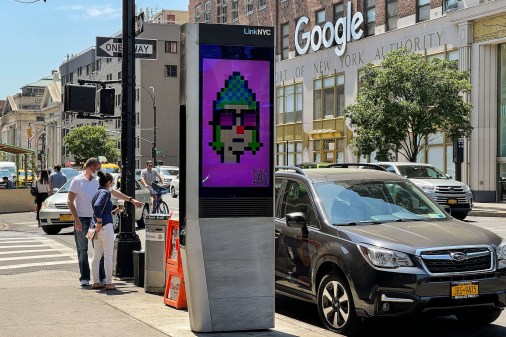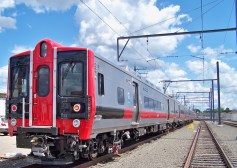California passes wireless bill limiting local right-of-way authority

On Thursday, the California legislature approved a bill that could clear a path for wireless providers to attach small-cell antennas to local utility poles.
The legislation, Senate Bill 649, passed the Assembly floor on a 46-16 vote, complementing the state Senate’s near-unanimous approval in May. Now the bill heads to Gov. Jerry Brown’s desk where he will decide whether the bill’s provisions, which overrule most local mechanisms to block 5G antenna permits, will help or harm California residents.
Bill co-author Sen. Ben Hueso, a Democrat representing San Diego, has argued that the legislation would establish a framework for streamlining the permitting process for small-cell wireless antennas by enabling companies legal access to utility infrastructure and setting standard rates for wireless providers to lease it.
The bill is bundled with an assortment of prohibitions to stop cities from interfering with the installation process. Cities would not be able to deny permits based on zoning, deny permits due to neighborhood opposition, nor would they be allowed to drag their feet on renewals since the bill demands every permit be automatically renewed. Further, if antennas meet Federal Communications Commission standards for radio frequency emissions, they cannot even be denied due to concerns about radiation exposure.
These are just a few controversial provisions that have sparked opposition from groups like the California League of Cities. In June, the mayors of San Francisco, Los Angeles, San Jose, Oakland, Santa Ana and Long Beach wrote a letter to Hueso to protest the bill, which they described it as “fundamentally flawed.”
“This bill would force cities to allow installation of facilities even where such installations threaten public safety or conflict with approved standards. State law should not prevent cities from performing one of their most important jobs: ensuring public safety,” the mayors said.
In addition to safety, the cities opposed the bill due to concerns about below-market lease rates, a bias toward large wireless providers, and its lack of consideration for low income and rural communities who might find themselves at a greater disadvantage compared to communities in wealthier urban areas.
However, the majority of their opposition centered around the bill’s pricing structure, which they judged as a handout to large telecoms like AT&T and Verizon. The mayors said the bill essentially subsidizes the private sector with below-market rates and will enable telecom carriers to earn more than $580 billion in 5G service revenues at an estimated 30 to 40 percent profit margin.
“The ‘cost-based’ fees proposed by SB 649 fail to adequately compensate the public for infrastructure they paid for while allowing these corporations to then sell back services to the very same public with no performance guarantees,” the letter states. “Cities, and the public, are set to lose millions of dollars in revenue that will be transferred directly to corporations under this bill.”
Yet the bill’s proponents argue the framework is necessary to ensure that California can deploy 5G without an endless barrage of holdups. They also say the faster connectivity will lower rates for consumers while still allowing cities and counties to have a reasonable amount of control over installations.
In an op-ed published by the Sacramento Bee, bill co-author Assemblyman Bill Quirk, a Democrat representing Hayward, said the technology would be a boon for smart city development, next generation public safety and serve as a catalyst for economic development as families and businesses gain access to new connectivity.
“Once installed, 5G speeds are expected to be 100 times faster than current wireless service and can serve exponentially more users with greater reliability,” Quirk said. “Since many more small cells are needed to make 5G deployment effective, it does not make sense to endure a hodgepodge of varying approval approaches and timelines for each individual cell.”






